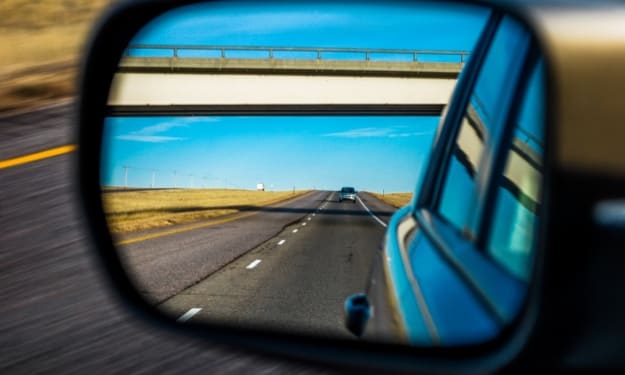Nothing to Declare?: Revisiting the (Proposed Wider) Laptop Ban
It wouldn't just be a pain for business travel in the U.S.- Europe corridor: A wider ban stifles the creative impulse, travel journalism, and the freedom of everyday travelers.
Months after the federal Department of Homeland Security banned large electronic items on U.S. bound flights originating in the Middle East, the agency is ready to double down in unsettling ways, with a proposed ban on laptops and tablets in cabins of U.S. bound flights from Europe. It hasn’t happened yet, but there’s a sense that the Trump government is quietly laying the groundwork for putting a ban in place.
That in itself would be bad enough: just One More Thing to be navigated (and tolerated) in the modern world. The original laptop ban, in March, and the one proposed now have a worthy rationale, intended to address the threat of explosives secreted in laptops and tablets by terrorist groups intent on creating mass-casualty events.
DHS' increased focus on laptops is certainly sparked by the February 2016 incident aboard Daallo Airlines Flight 159 — an explosion from a laptop bomb that killed a suicide bomber and injured two passengers after takeoff in Somalia. Other deadly airline bombings in Turkey, Egypt and Brussels, from 2015, added urgency to the agency's actions too.
But every law real or proposed has unintended consequences.
The nightmare's self-evident for business travelers; they'd be expected to object to anything that cuts into the ability to work on the long-haul flights between Europe and the United States — one of the leading global air-traffic corridors.
“It's really important for the business traveler to have access to their laptop when they're traveling to the United States,” Patricia Rojas-Ungár of the U.S. Travel Association told David Schaper at NPR. “Because they're doing business, but also because there's some sensitive data on their computers and they want to be able to have their computers close.”
“I think you’re looking at a substantial uproar from the business community over this,” said Greg Raiff, CEO of Private Jet Services, a New Hampshire-based charter company, to Bloomberg.
◊ ◊ ◊
But DHS' proposed ban expansion may be just as upsetting for legions of other travelers: everyday people taking vacations or personal travel — people eager to document their travels for posterity (or for blogs, friends and family).
The phrase “nothing to declare” takes on another meaning when writers, journalists, photographers and other professionals in the travel industry find they can't work, or work as well — can't properly declare the wonders they've seen — because of the restrictions the new ban would impose.
The financial impact for all such travelers isn't easily dismissed. The International Air Transport Association (IATA), the Montreal-based aviation trade organization, reported recently that an expanded laptop ban would cost $1 billion, and affect more 65 million passengers on some 400 daily routes.
“Traveling with your laptop is part of everyday life,” Alexandre de Juniac, IATA’s Director General and CEO, told Bloomberg on May 17th. “We are not sure that this ban is adapted to the threat. We don’t know what is the basis or intelligence that justifies this measure.”
◊ ◊ ◊
Officials at the Department of Homeland Security are already trying to condition the public with ameliorative statements, doing what they can to calm waters they'd already made turbulent. DHS spokesman David Lapan told me in an email last week that “[t]here is no deadline or timeline for the decision” on expanding the ban instituted in March. And the agency said on May 24th that there are no plans to expand its ban on large electronics to include any flights leaving the United States. No such plans were expected.
But CBS News reported on May 24th that the wider ban may contain a “substantial increase in the number of airports to include major airports in Europe.”
“In fact, the ban could involve some or all airports in Europe, the Middle East, and North Africa,” CBS News reported.
And more: DHS officials held a “technical meeting” on May 23rd with European officials, a meeting that, according to Lapan as quoted by CBS, concerned “information sharing” and “alignment of technical standards” — things that sound an awful lot like preparations being made for the wider laptop ban.
◊ ◊ ◊
For an airline industry already reeling from recent incidents of bad in-flight behavior by airline personnel, and waiting for the outcome of a travel ban proposed by the Trump White House to curb travel to the U.S. from several Muslim nations, an expanded ban on personal electronics for passengers on hundreds of daily flights may cause more problems than it solves. “The current situation is not acceptable and will not maintain the all-important confidence of the industry or of travelers,” de Juniac said in a March speech to the Montreal Council on Foreign Relations. “We must find a better way. And governments must act quickly.”
We can only hope de Juniac is heard. If it goes through, the expanded ban will profoundly affect travel as an esthetic and cultural experience. Whatever the practical (and tactical) justifications for the ban are, there’s no escaping the fact that such a ban, panoramically applied, would have a huge and largely immediate impact on the creative impulse in ways we can’t even envision right now.
What we can envision is bad enough. The ability to efficiently document where we are and where we’re going — the soul and foundation of travel writing — will be hobbled if the new ban goes through. Yes, working on your device at your point of destination wouldn’t be affected. But the real-time process of fully documenting the journey — not just the being there but also the getting there — might never be the same.
About the Creator
Michael Eric Ross
Michael Eric Ross writes from Los Angeles on politics, race, pop culture, and other subjects. His writing has also appeared in TheWrap, Medium, PopMatters, The New York Times, Entertainment Weekly, msnbc.com, Salon, and other publications.
Enjoyed the story? Support the Creator.
Subscribe for free to receive all their stories in your feed. You could also pledge your support or give them a one-off tip, letting them know you appreciate their work.






Comments
There are no comments for this story
Be the first to respond and start the conversation.